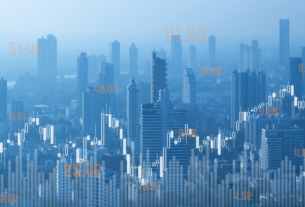A top U.S. military commander met with the Panama Canal’s administrator on Thursday to discuss countering Chinese influence over the strategic waterway. The visit comes as U.S. President Donald Trump has asserted that the canal should be under Washington’s control.
Admiral Alvin Holsey, head of U.S. Southern Command (Southcom), met with administrator Ricaurte Vásquez to explore ways to “protect and secure” the canal. The U.S. Embassy in Panama shared photos of the meeting on social media, highlighting concerns over China’s growing presence.
The Panama Canal is a vital trade route connecting the Atlantic and Pacific Oceans, making it a focal point for global commerce. China has expanded its economic ties with Panama in recent years, raising concerns in Washington about Beijing’s strategic ambitions.
Earlier this month, U.S. Secretary of State Marco Rubio warned Panama’s president about the risks of Chinese investment and influence. The warning has intensified diplomatic tensions between the two countries as Panama balances relations with both global powers.
Panama’s president reacted with anger to U.S. concerns, signaling resistance to external pressure over economic decisions. His government has maintained that Panama remains committed to neutrality in managing the canal.
China has invested heavily in Panama’s infrastructure, including port facilities and logistics hubs. These investments have fueled speculation that Beijing seeks greater control over trade routes critical to global supply chains.
The U.S. has long viewed the canal as a key national security interest due to its role in international trade and military logistics. Trump’s administration has pushed for stronger U.S. oversight to counter China’s growing footprint.
Holsey’s visit reflects broader U.S. efforts to reinforce alliances in Latin America and limit Chinese influence. Washington has increased diplomatic and military engagements in the region to strengthen security cooperation.
Panama’s government has defended its economic partnerships, stating that Chinese investments do not compromise national sovereignty. Officials argue that foreign investment is essential for modernizing the canal and supporting economic growth.
Despite U.S. concerns, China remains one of the largest users of the Panama Canal, with many of its shipping companies relying on the route. Trade between China and Latin America has surged, deepening economic ties between Beijing and regional governments.
The U.S. military’s involvement highlights the geopolitical significance of the canal beyond commercial trade. Control over key maritime routes remains a central issue in U.S.-China competition for global influence.
As Washington continues to pressure Panama, analysts predict increased diplomatic maneuvering in the region. The outcome of these discussions could shape future U.S.-Panama relations and influence global trade dynamics.
Holsey’s meeting is part of a broader strategy to strengthen U.S. presence in Latin America. The Pentagon is expected to maintain a close watch on developments in the Panama Canal and surrounding areas.
With tensions rising, Panama faces growing challenges in managing its strategic partnerships. The country must navigate between U.S. security concerns and the economic benefits of Chinese investment.




